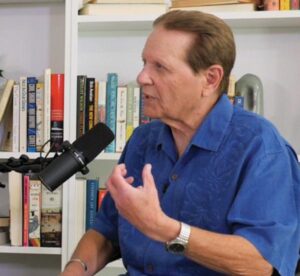Dispatches from @BobAvakianOfficial Revolution 22
Communism will utilize the technology and resources in the world, and the knowledge and abilities of people in the world, for the common good. This will make possible the creation of a common abundance for all of the people, doing away with the need for individuals to struggle just to survive, and eliminating the need for people to compete with each other in order to get the basic necessities of life. On this basis, it will make possible a fundamental transformation of what is now thought of as “human nature.”
How is this possible? As I emphasized in message number Nineteen:
With all the very real horror this has involved, the development of human society, up to and through capitalism, has created the basis for a world without all those horrors. The basis exists now—the technology, knowledge and scientific foundation—to provide a decent and continually enriched life, in an all-around way, for everyone on this earth, without any oppressive divisions among human beings.
And the basis exists for human beings to finally become fit caretakers of the earth as a whole.
The fundamental force preventing this from happening is this system of capitalism-imperialism, which rules in this country and dominates the world. This system treats as the “private property,” of a few, the productive capacity and productive knowledge of human beings, which has been produced through the physical and intellectual labor of masses—of billions—of people. This system is driven by ruthless competition and conflict between different capitalist exploiters and different capitalist countries—leading to the ongoing, accelerating destruction of the environment, and the continual wars, posing a growing danger to the future and the very existence of humanity.
This system has to go—and be replaced by a system based on collective ownership by the people of the productive means that human beings everywhere have created—utilizing this for the benefit of human beings as a whole, now and for future generations: a socialist system, aiming for a communist world where relations of exploitation and oppression, and the culture that goes along with and reinforces those relations, will be eliminated and uprooted, and humanity can truly flourish—with a continually developing scientific approach, building on everything from the past that can contribute to this emancipating future, drawing from the rich diversity of human beings, enabling a flowering of all the people who make up the human race, in the context and on the foundation of cooperation and mutual benefit.
In future messages, I will be speaking about previous communist revolutions, and the development of the new communism, which has resulted from decades of work I have carried out, drawing from the positive and negative experience of those previous communist revolutions, and from a broad range of human experience.
But, from what I have gotten into in this message, and the previous one, it should be clear that there is no such thing as a fixed and unchanging “human nature,” and in fact people’s ways of thinking and acting continually undergo changes of one kind or another, in the context of larger changes in the society and world in which they live. The most important thing to understand—the necessary and crucially important conclusion—is this: It is in the process—and only in the process—of going up against and finally overthrowing this system of capitalism-imperialism and all oppressive relations, and bringing into being a radically different and much better world, that masses of people, and ultimately human beings as a whole, can also radically change their way of thinking and acting: breaking with the poisonous culture, “values” and mentality promoted by oppressive systems, of all kinds, and taking up the emancipating values of revolution aiming for a communist world without oppressive and exploitative divisions among human beings.
That is the fundamental, profound answer to the question of “human nature.”
It is up to those who have come to an understanding of this, to wage the necessary struggle to win continually growing numbers of people to understand this — and to act on it—to make revolution. And this is all the more crucially important in this rare time when, as I have shown in previous messages (especially numbers One through Eleven), this revolution is not only urgently necessary but is possible.



